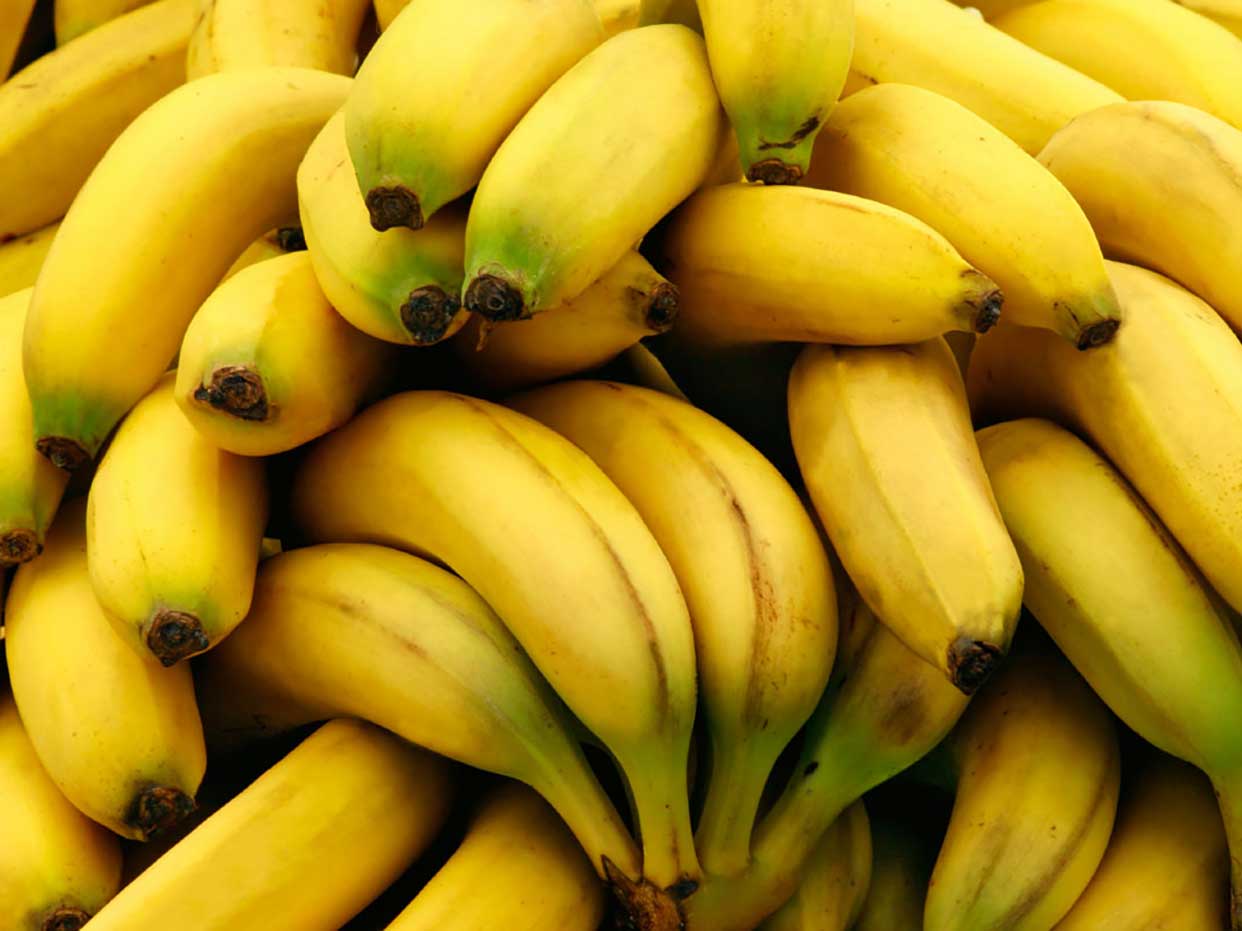Panama disease: why bananas are at risk of extinction
Scientists racing against time to make the fruit resistant to fungal disease

A free daily email with the biggest news stories of the day – and the best features from TheWeek.com
You are now subscribed
Your newsletter sign-up was successful
A team of UK scientists is exploring gene-editing technology as a potential solution to an unstoppable fungal disease decimating the world’s banana plantations.
A fungal disease called “fusarium wilt”, or Panama disease, “has been attacking plantations in Australia, south-east Asia and parts of Africa and the Middle East”, The Guardian reports - and there are fears it could spread to the banana-growing heartlands of Latin America.
Traditional fungicides are unable to prevent the spread of the virulent strain, and breeding a new variety of the fruit is not an option because banana crops are cloned rather than bred.
The Week
Escape your echo chamber. Get the facts behind the news, plus analysis from multiple perspectives.

Sign up for The Week's Free Newsletters
From our morning news briefing to a weekly Good News Newsletter, get the best of The Week delivered directly to your inbox.
From our morning news briefing to a weekly Good News Newsletter, get the best of The Week delivered directly to your inbox.
Start-up Tropic Biosciences, based in Norwich, has used cutting-edge gene editing techniques to develop a banana cell which it believes would be resilient to Panama disease.
“Gene editing makes a lot of sense, because the only way you can change the banana now is through genetics,” CEO Gilad Gershon told Fast Company.
“If we don’t [take] this type of role and save the banana, I’m not sure there’s any other way to do it.”
Field trials of the genetically engineered species are to begin this year in central America, the Philippines and Turkey.
A free daily email with the biggest news stories of the day – and the best features from TheWeek.com
When Panama disease last struck on this scale, in the 1950s, it wiped out the world’s dominant banana species, the Gros Michel - generally regarded as more flavourful than the Cavendish bananas we eat today.
The 1923 vaudeville novelty song Yes! We Have No Bananas is thought to have been inspired by the shortages caused by early outbreaks.
The disease spread beyond Panama, and by the 1950s, Gros Michel plantations had been decimated beyond redemption. A more resistant strain of banana, the Cavendish, quickly took over as the pre-eminent species.
Cavendish bananas now account for 99.9% of all bananas exported around the world. But monoculture - the cultivation of one variety of crop to the exclusion of all others - is a ticking time bomb, environmental scientist Jackie Turner warned earlier this month in digital magazine Aeon.
“When a population lacks genetic diversity, its members have a heightened risk of succumbing to disease,” she wrote. “Staking the fate of a fruit on monoculture is dangerous in the extreme.”
-
 Switzerland could vote to cap its population
Switzerland could vote to cap its populationUnder the Radar Swiss People’s Party proposes referendum on radical anti-immigration measure to limit residents to 10 million
-
 Political cartoons for February 15
Political cartoons for February 15Cartoons Sunday's political cartoons include political ventriloquism, Europe in the middle, and more
-
 The broken water companies failing England and Wales
The broken water companies failing England and WalesExplainer With rising bills, deteriorating river health and a lack of investment, regulators face an uphill battle to stabilise the industry
-
 Epstein files topple law CEO, roil UK government
Epstein files topple law CEO, roil UK governmentSpeed Read Peter Mandelson, Britain’s former ambassador to the US, is caught up in the scandal
-
 Iran and US prepare to meet after skirmishes
Iran and US prepare to meet after skirmishesSpeed Read The incident comes amid heightened tensions in the Middle East
-
 Israel retrieves final hostage’s body from Gaza
Israel retrieves final hostage’s body from GazaSpeed Read The 24-year-old police officer was killed during the initial Hamas attack
-
 China’s Xi targets top general in growing purge
China’s Xi targets top general in growing purgeSpeed Read Zhang Youxia is being investigated over ‘grave violations’ of the law
-
 Panama and Canada are negotiating over a crucial copper mine
Panama and Canada are negotiating over a crucial copper mineIn the Spotlight Panama is set to make a final decision on the mine this summer
-
 Why Greenland’s natural resources are nearly impossible to mine
Why Greenland’s natural resources are nearly impossible to mineThe Explainer The country’s natural landscape makes the task extremely difficult
-
 Iran cuts internet as protests escalate
Iran cuts internet as protests escalateSpeed Reada Government buildings across the country have been set on fire
-
 US nabs ‘shadow’ tanker claimed by Russia
US nabs ‘shadow’ tanker claimed by RussiaSpeed Read The ship was one of two vessels seized by the US military